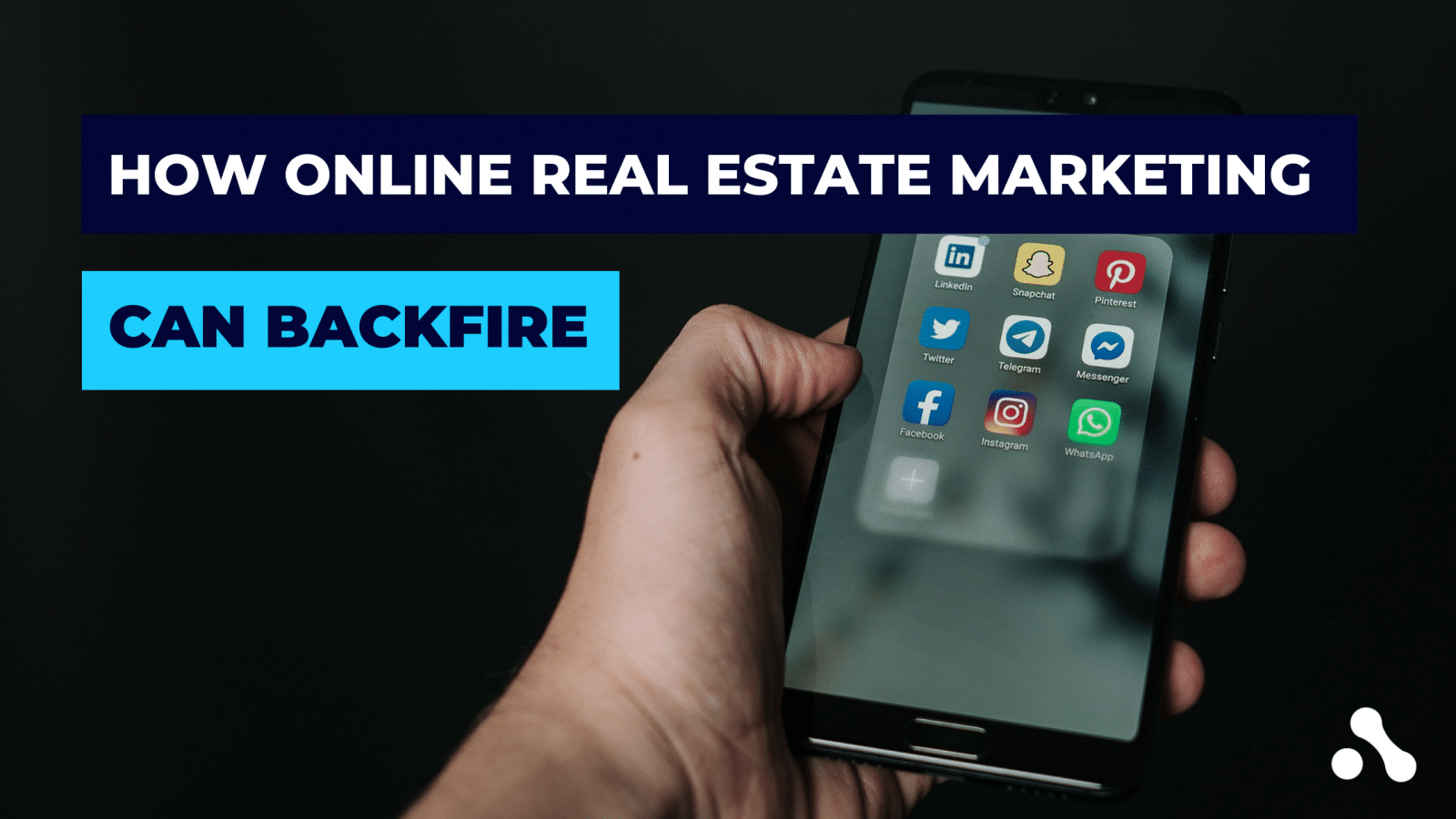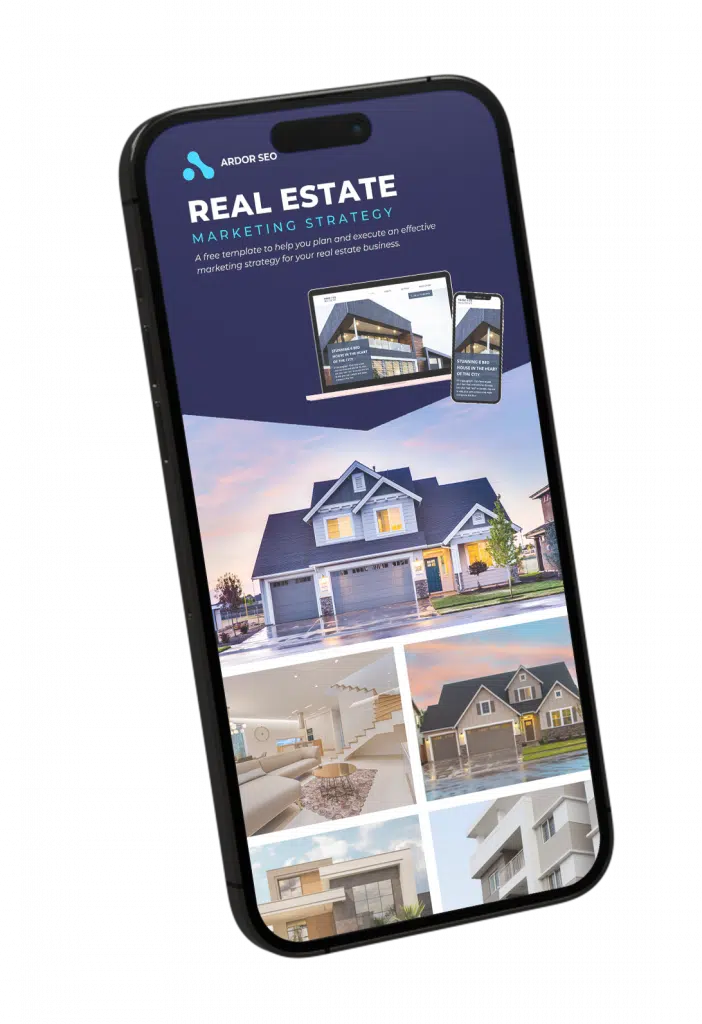
Here’s a picture for you: You're a real estate agent, trying to make a name for yourself in the industry. You've heard all the buzz about social media and how it's the key to success in today's digital age. So you load up Facebook and set up a page. While at it, you set up an Instagram account and start tweeting as well.
But as the weeks go by, you notice the strangest thing. Your social media numbers aren't reflecting your own business' growth. You’re losing new leads instead. What's going on?
You see, social media is such a valuable information hub for businesses to connect with potential customers and promote their services. However, in the realty industry, the same real estate social media strategy becomes a double-edged sword. On one hand, an effective way to social media marketing and client engagement, but also a bunch of misfires waiting to happen.
This piece examines some of the most obvious pitfalls that can cause real estate marketing on social media to go up in smoke.
Notable mentions include:
Sharing Too Much Information Online
One common pitfall for any social media marketing plan is the temptation to overshare. As a real estate agent, you may feel pressured to constantly post updates and listings to keep your socials active, but this can quickly become overwhelming for followers.
You experience the opposite effect: instead of engaging with your content, your followers may end up feeling bombarded and unfollow you altogether. If that doesn’t happen, expect your audience to gradually tune it out. Either way, you’re looking at a massive engagement decline on your posts.
But the damage doesn’t stop there. Oversharing can make you appear desperate or pushy, which can annoy potential clients. If your entire blog post social media presence feels like a constant stream of advertisements, people are less likely to engage with your content or utilize your services.
Having too many social media posts can also dilute the impact of your content. If you're constantly posting new listings or updates, your audience may miss out on important or interesting content.
It's essential to strike a balance between staying active on social media and providing valuable, relevant content to your audience. You can start by mapping out a rock-solid social media marketing strategy.
Structure your posts in advance and focus on quality over quantity. Consider the needs and interests of your target audience, and provide informative, engaging, and valuable content to them. By thoughtfully approaching social media advertising for real estate, you don’t run the risk of sharing too much.
The Power of Negative Feedbacks
Another risk your online real estate plans run is the potential for negative feedback. As you might have surmised, real estate marketing social media is high-stakes, and clients can get vocal about their experiences and buying process.
A negative review or comment on social media can quickly spread, damaging your reputation in the real estate market and costing you potential business.
Negative feedback on social media can do so much damage to your real estate marketing on social media in more ways than one. For one, people are more likely to trust the opinions of others. If it’s negative, they might refuse to work with you.
Negative feedback travels far and fast on social media. A dissatisfied comment or review can get seen by many people, making it easier to share. That can lead to a viral backlash that quickly goes out of control.
What’s more? Negative feedback can harm your relationship with your existing clients and future clients. If a client leaves a negative review or comment on your social media realtor profiles, address it promptly and professionally. Failure to do so can result in further negative feedback, damaging your relationship with the client and harming your business.
How can you guard against negative feedback? For starters, provide excellent customer service as a real estate agent and address any concerns promptly. Monitor your social media profiles regularly and respond to any negative feedback in a professional and respectful manner.
Unexpected Legal Implications
Did you know that a single Instagram post can land you in hot water faster than you think? Social media can also lead to unintended consequences, such as legal issues. For example, posting a photo of a property without permission from the owner or the listing agent can result in legal action.
The same goes for using copyrighted materials, or video content such as images or music, without permission. You could receive a copyright infringement claim for this act. As such, real estate agents must stay cautious about what they post on social platforms and ensure they’ve got the proper permissions to use any content they share.
Besides the legal issues associated with social media, real estate agents must also be cautious about complying with advertising and fair housing laws. For example, posting discriminatory language or images on social media can trigger a fair housing complaint, leading to legal action.
Legal issues are often costly and time-consuming, harming your reputation and your business in the long run. To avoid these problems, get a clear understanding of the laws and regulations applicable to real estate on every social media app you have.
Take the time to review the terms of service for each platform and ensure that you're complying with their guidelines.
It's also an excellent idea to work with a legal professional who specializes in real estate law. They’d ensure you follow all applicable laws and regulations.

Tight Timing
Social media can get demanding quickly, especially when you’ve fallen for the urge to post content relentlessly. Real estate agents may struggle to balance their online presence with daily responsibilities. Spending too much time on social media can take away from other important tasks, such as meeting with clients or showing properties.
Conversely, when you're busy with client meetings, property showings, and other day-to-day endeavors, social media marketing can quickly fall to the bottom of your to-do list.
From a broader standpoint, tight schedules makes it challenging to maintain a consistent and effective social media marketing strategy on social media. However, that can get problematic since social media marketing and your day-to-day operations require consistency to be effective.
If you're not releasing social media posts regularly, your audience may lose interest or forget about you. Inconsistent posting can also make it difficult to build momentum and generate engagement.
To avoid letting tight schedules ruin your social media marketing on social media, have a plan in place. Consider using a social media management tool to schedule your posts in advance. Having a defined posting calendar can help you stay active on social media even when you're busy with other tasks.
Another excellent idea is to delegate social media management to a team member or a paid social media marketing agency. This route ensures that your business account and social media presence remains consistent and effective, even when you don't have time to manage it yourself.
Bottom Line
Social media has revolutionized the real estate industry, providing real estate agents and companies with a powerful tool to connect with potential clients and market their properties.
But as with any marketing strategy, it can backfire and cause significant damage to an agent or company's reputation and credibility.
By approaching your social media marketing realtor activities with caution and care, you can avoid the dark side of social media and reap the rewards of this powerful marketing tool.
Overall, social media remains a valuable asset for real estate professionals looking to grow their real estate business, maintain relationships, and succeed in the digital age.
FAQs
Yes, social media and marketing tools can be highly effective for real estate agents and companies. By utilizing tested and proven real estate social media platforms such as Facebook, Instagram, and Twitter, agents can reach a wider audience, showcase their properties, and build relationships with potential buyers and clients.
Yes, social media can prove useful for real estate businesses. With over 4 billion active social media users worldwide, social media platforms such as Facebook, Instagram, and Twitter offer a tremendous opportunity for local businesses seeking real estate knowledge to connect with prospective clients and showcase properties to a large audience.
Looking to improve your website's search engine rankings and drive more traffic to your business? Contact Ardor SEO to learn more about our comprehensive real estate SEO services. Get started with us today and you'll generate leads you can nurture into high-paying clients in no time!

